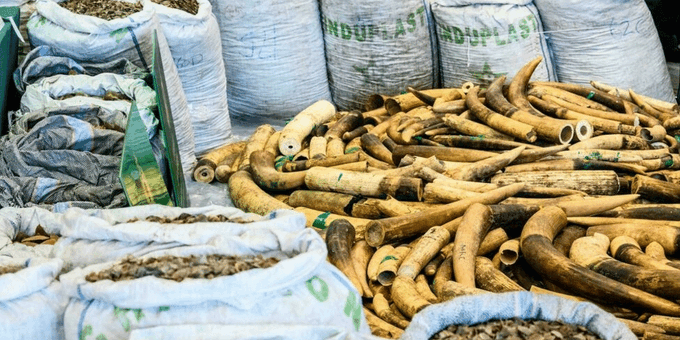|
Getting your Trinity Audio player ready...
|
In an unprecedented move to combat wildlife trafficking, Hong Kong’s lawmakers yesterday voted in favour of an amendment bill that means certain wildlife offences will, for the first time, be treated as Serious and Organized crimes.
The Bill incorporates wildlife crime offences into Hong Kong’s Organized and Serious Crimes Ordinance (Cap. 455), providing additional/appropriate powers to local law enforcement and providing a clear mandate to deter, detect, disrupt and dismantle criminal networks responsible for wildlife trafficking.
Proposed by the Hon Elizabeth Quat, the action allows for a refocusing of investigations and prosecutions, from the previous approach of focusing on prosecuting carriers and mules to instead target the organized criminals and networks behind the crimes. The same networks involved in wildlife trafficking have been linked by leading experts, to human, weapon and drug trafficking, underscoring the serious and organized nature of this criminality.
“The fight against wildlife crime is an immense challenge and by taking this bold move to amend its laws, Hong Kong is not only showing global leadership but is signalling that we can no longer stand by and let wildlife traffickers continue to exploit our city, devastate wildlife populations and steal local natural resources that impact local communities and national economies worldwide,” said Lisa Genasci, CEO of the ADM Capital Foundation, an environmental foundation with a dedicated wildlife trade programme.
The global community has repeatedly called on countries to strengthen wildlife crime legislation. As recently as July 2021, the United Nations General Assembly adopted a resolution to combat wildlife trafficking, recognizing the associated economic, social and environmental impacts.
The resolution urged member states to take decisive steps to prevent, combat and eradicate the illegal trade in wildlife, including strengthening local legislation. In particular, it encouraged states to make trafficking in protected species of wild fauna and flora involving organized criminal groups, a serious crime.
In the midst of a biodiversity crisis, in large part driven by the illegal wildlife trade and exacerbated by climate change, which has altered habitats, Hong Kong has become a hub for the illegal wildlife trade.
Authorities seized 929 metric tonnes (MT) of rare and endangered wildlife across 1,680 seizures from 2018 to 2020.
“Hong Kong’s recent seizures continue a decade-long upward trend that has seen the decimation of multiple species including rhino, elephant and pangolin populations, globally, while the perpetrators go free,” said Amanda Whitfort, Associate professor of Law at Hong Kong University. “The enhanced investigative and punitive powers that will now be accessible to those local enforcement authorities tasked with combatting wildlife crime is a potential game-changer not just for Hong Kong, but regionally. It should, if applied, result in much-needed deterrence,” she said.
Recent record-breaking seizures in Hong Kong include; 82kg rhino horn, equivalent to 31 black rhino or 14 white rhinos, and 8.3MT pangolin scales seized with 2.1MT ivory, equivalent to 13,800 pangolins and 200 elephants (2019).
Despite their scale, there have been no known prosecutions relating to these record seizures, highlighting how critical the Bill is to Hong Kong’s enforcement authorities.
A proponent of the Bill Elizabeth Quat remarked that “The nature of illegal wildlife trade in itself is a clear expression of pre-meditated acts, carefully orchestrated operations carried out by global seasoned organized syndicates. She added “they should be treated as such by the Government and the justice system. Through proposing this member’s bill, I hope the government can demonstrate to the international community Hong Kong’s commitment to stem out such crimes by seriously combating wildlife crimes and eventually become one of the global leaders in the fight against illegal wildlife trade.”
The passage of the Bill follows an increase in penalties for wildlife trafficking in 2018, that to date had not deterred traffickers, because the majority that has been prosecuted is not the ‘masterminds’ behind the crimes.
Since 2014, ADM Capital Foundation and the Hong Kong Wildlife Trade Working Group have worked toward a change in legislation that will allow wildlife crime to be treated as serious and organized crime.
This has involved extensive research on the extent and nature of wildlife crime in Hong Kong including the Trading in Extinction Reports and with Amanda Whitfort of the University of Hong Kong, the formulation of a policy paper – Enhanced Enforcement Strategy White Paper. These have been accompanied by public-facing engagement and education via the ‘Break the Chain’ Street art/augmented reality campaign.






